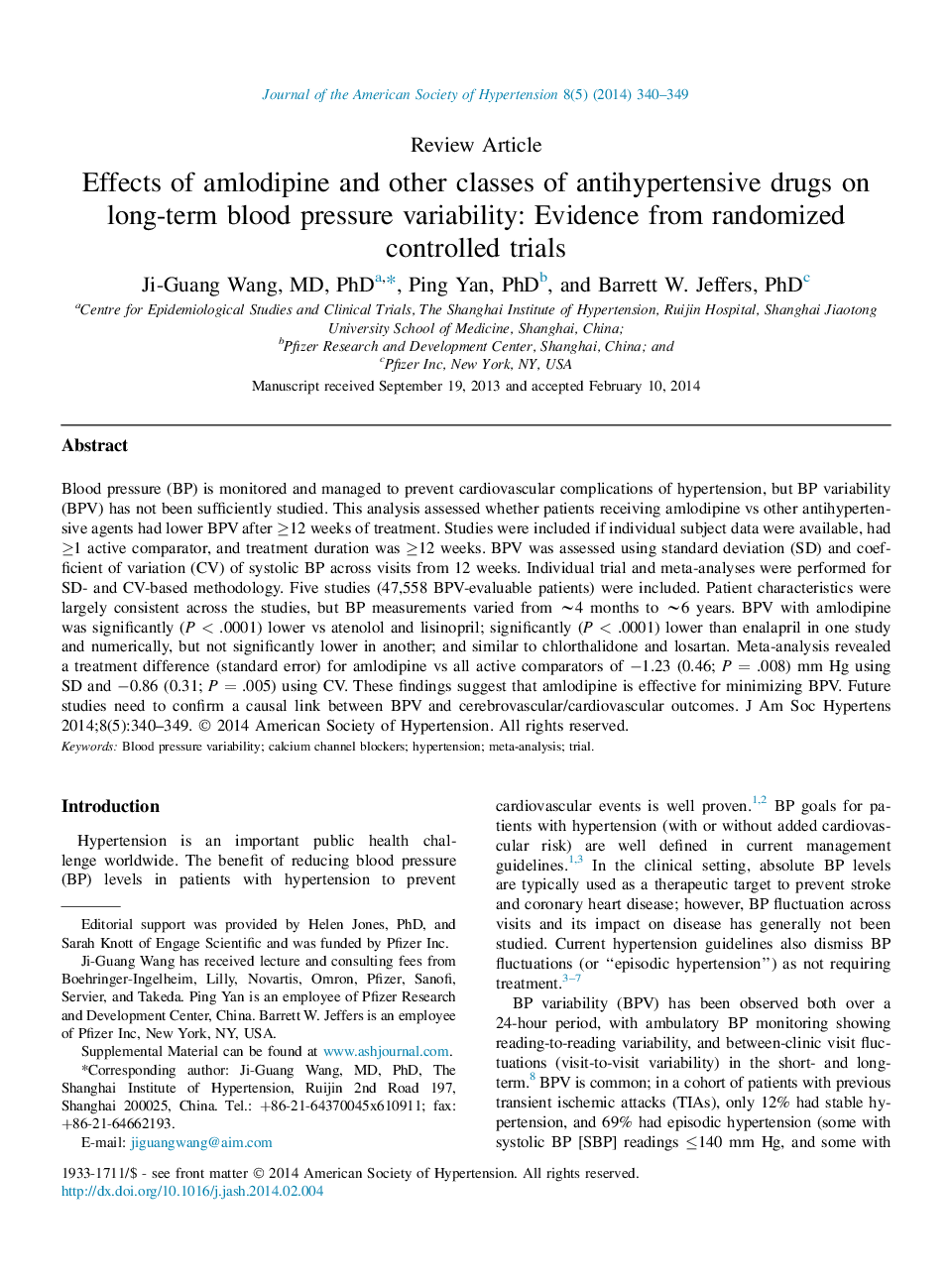| Article ID | Journal | Published Year | Pages | File Type |
|---|---|---|---|---|
| 2956567 | Journal of the American Society of Hypertension | 2014 | 10 Pages |
Blood pressure (BP) is monitored and managed to prevent cardiovascular complications of hypertension, but BP variability (BPV) has not been sufficiently studied. This analysis assessed whether patients receiving amlodipine vs other antihypertensive agents had lower BPV after ≥12 weeks of treatment. Studies were included if individual subject data were available, had ≥1 active comparator, and treatment duration was ≥12 weeks. BPV was assessed using standard deviation (SD) and coefficient of variation (CV) of systolic BP across visits from 12 weeks. Individual trial and meta-analyses were performed for SD- and CV-based methodology. Five studies (47,558 BPV-evaluable patients) were included. Patient characteristics were largely consistent across the studies, but BP measurements varied from ∼4 months to ∼6 years. BPV with amlodipine was significantly (P < .0001) lower vs atenolol and lisinopril; significantly (P < .0001) lower than enalapril in one study and numerically, but not significantly lower in another; and similar to chlorthalidone and losartan. Meta-analysis revealed a treatment difference (standard error) for amlodipine vs all active comparators of −1.23 (0.46; P = .008) mm Hg using SD and −0.86 (0.31; P = .005) using CV. These findings suggest that amlodipine is effective for minimizing BPV. Future studies need to confirm a causal link between BPV and cerebrovascular/cardiovascular outcomes.
